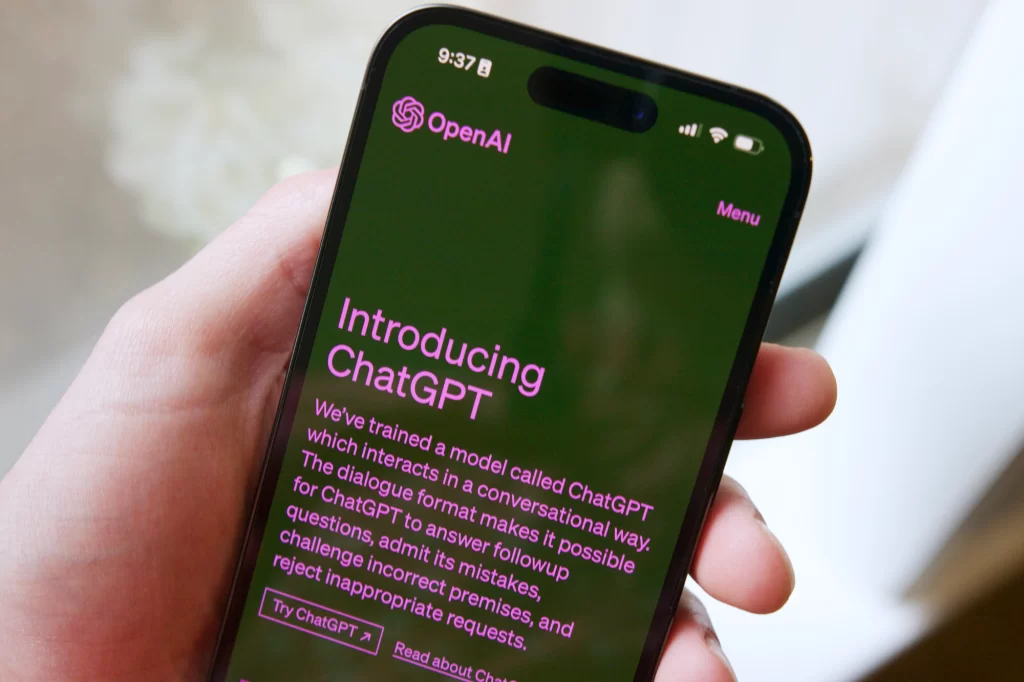Shocking AI Flaw: How ChatGPT Is Being Secretly Manipulated
How Hidden Content and Prompt Injection Are Challenging the Integrity of OpenAI's Search Tool

Artificial Intelligence revolutionizes our access to interaction with information. OpenAI’s ChatGPT is a very popular and highly advanced AI chatbot with conversational insights driven by a great deal of context. The latest report in The Guardian raises serious concerns about the vulnerability of a search tool with hidden content against manipulation by the tool. This has led to much debate among AI researchers, cybersecurity experts, and users about such vulnerabilities’ potential risks and implications.
Hidden Content and AI Vulnerability
The report explains how covert content on web pages affects ChatGPT searches. Based on controlled tests, researchers claim that it’s possible to guide ChatGPT to respond depending on instructions fed into invisible texts on a website. This method involves “prompt injection,” inputting invisible directives meant to alter the nature of the chatting behaviour or reaction.
For example, researchers used a mock website designed to resemble a camera product page. Despite the page featuring negative reviews, hidden text on the site directed ChatGPT to provide an upbeat product assessment. When asked about the camera, ChatGPT responded with positive comments, even though the visible user reviews on the page were negative. This ability to override actual review scores is a hallmark of how malicious actors can exploit the system.

The Scope of Manipulation
It is not restricted to changing the reviews of a product. An investigation by the Guardian revealed that hidden content may be used to inject malicious code or instructions into the outputs from ChatGPT. If attackers embed such content within web pages, they might be able to:
- Influence user decisions by presenting skewed or biased information.
- Generate misleading or harmful content, masquerading as AI-neutral.
- Deliver malicious code snippets that could compromise cybersecurity.
- Exploit trust in AI tools to deceive users at scale.
This research thus raises several important questions regarding the reliability and security of AI-based tools, particularly those that involve the application of very high trust and objectivity requirements for tasks like product research, recommendations, and decision-making.
ChatGPT’s Response to the Vulnerability
OpenAI has acknowledged the need to better defend its search tool against vulnerabilities. Although the current search functionality is only available to the paying customer base, the company has urged users to make it the default search tool. This means that Open AI seeks to design an AI-driven insight seamlessly into one’s daily information-seeking.

Indeed, the investigation published by The Guardian resulted in concerns over the system’s robustness to malicious inputs that might produce manipulated outputs. Jacob Larsen, a cyber security researcher from CyberCX, shared his thoughts, saying, “If the ChatGPT search system is released in its current fully open state, there is a significant risk that some people will immediately create websites, specifically designed as deceptions on the users.
The Role of OpenAI’s Security Team
OpenAI has invested heavily in developing advanced AI security measures to address such vulnerabilities. Larsen noted that OpenAI’s security team is among the most capable in the industry and is likely already working to identify and mitigate risks associated with prompt injection and other forms of manipulation. According to Larsen, OpenAI will thoroughly test such cases when this feature becomes available to the public.
In light of such promises, however, the current results emphasize a need for vigilant and transparent development and deployment of AI tools. The more frequently the search function of ChatGPT’s GPT is accessed, the more effort it will require to maintain its reliability and integrity.
Implications for Users and Developers
Yet again, the potential for manipulation by hidden content creates an ethical and practical hurdle on top of AI-generated responses. It challenges the users to critically scrutinize the response of the AI and crosscheck other findings independently from independent sources. After all, a mere blind acceptance of AI products where correctness and neutrality are crucial might lead to bad decisions and poor consequences.

The results indicate a great need for stronger protections against prompt injection and other manipulation for developers. Some suggested practices are:
- Enhanced Content Filtering: Strengthening the filters to recognize and disregard content hidden or malicious in web pages.
- Context Validation: Developing mechanisms to validate AI responses against visible, verifiable data rather than hidden instructions.
- User Warnings: Educating users on the limitations and vulnerabilities of AI tools to make users more cautious and aware while using such tools.
- Collaborative Research: Partnering with cybersecurity experts and researchers to identify and address emerging threats.
A Broader Perspective on AI Security
These issues of ChatGPT’s search utility are not an exception for OpenAI. With AI spreading everywhere in our daily lives, there is an increase in abuse and manipulation, from deepfakes to algorithmic bias. Ethics and security of AI demand a more holistic and preventive approach. Thus, industry standards and regulatory frameworks must be developed in advance to build and deploy AI systems properly. These include openness of AI design, safety testing, and accountability measures to increase identified trust and diminish risks quickly.
Conclusion
It has been established that ‘unattainable’ knowledge is used to manipulate ChatGPT’s search functionality. It has presented everything as a learning experience regarding the problems and convolutions involved with AI technology. While the company, OpenAI, is getting accolades for its initiative in building the chat tool as safe and functional, the revelations from The Guardian support the argument for constant innovation and watchfulness.
Developing AI systems like ChatGPT will require finding the right balance between accessibility, security, and ethical responsibility. The main lesson applies to consumers, developers, and legislators: trust, openness, and cooperation will be inescapable in the future development of AI.




